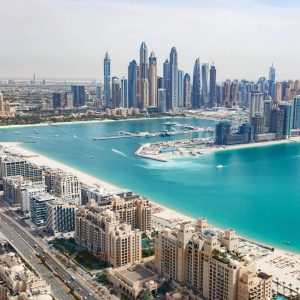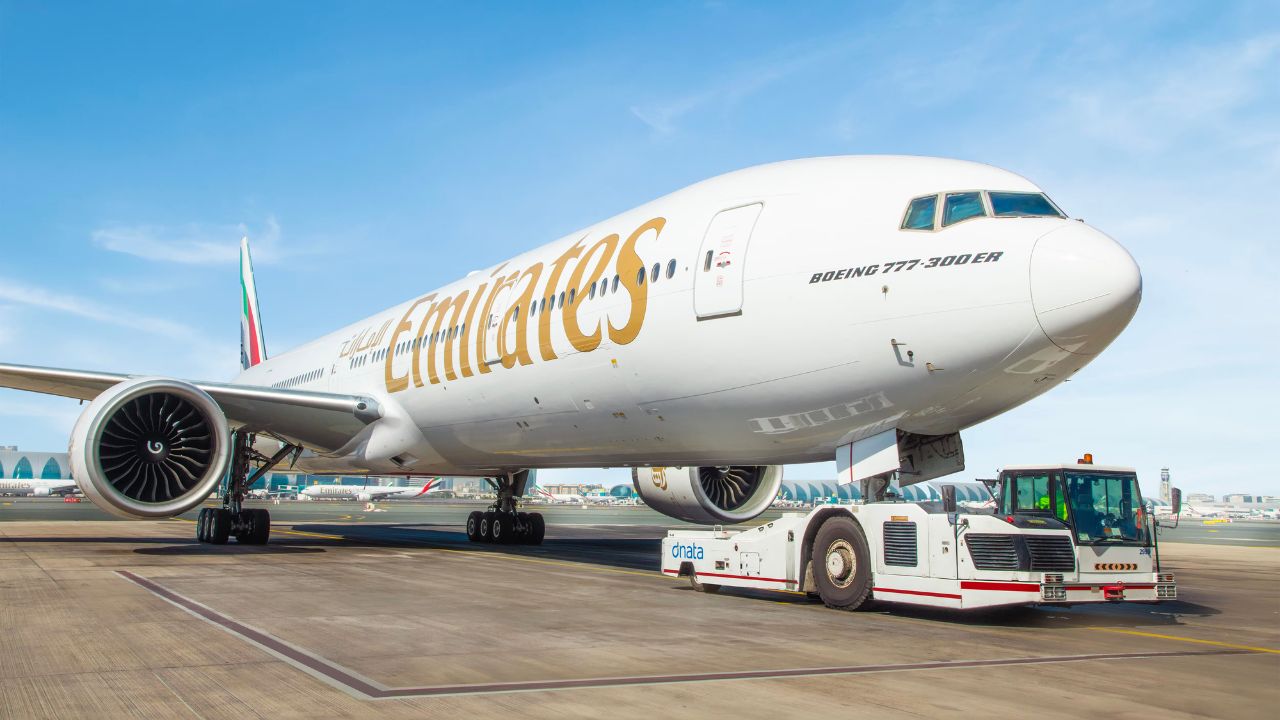
Emirates To Reduce Fuel Prices: Strategic Shift in Global Aviation
Emirates’ decision to reduce fuel-related costs marks a transformative moment not only for the airline itself but for the broader global aviation industry. Fuel has consistently remained the single largest operating expense for airlines worldwide, directly influencing ticket pricing, route profitability, fleet planning, and long-term sustainability strategies. When fuel prices fluctuate, airlines are often forced to adjust fares, cut routes, or reduce capacity.
By implementing a structured and forward-looking fuel optimization strategy, Emirates is moving beyond reactive cost control. Instead, it is adopting a proactive model that enhances financial resilience, strengthens pricing flexibility, and reinforces its competitive advantage across international markets.
This initiative is designed to support passenger affordability, improve operational efficiency, and accelerate environmental responsibility while simultaneously positioning Dubai as an even stronger global transit and logistics hub connecting East and West.
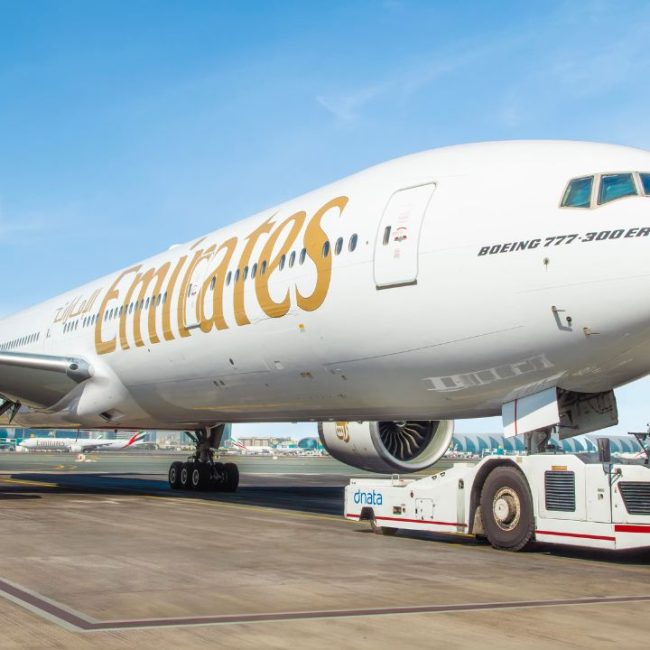
Global Aviation Fuel Market Context
The global aviation fuel market remains highly volatile due to geopolitical tensions, supply chain disruptions, OPEC+ production decisions, and fluctuating crude oil benchmarks. Jet fuel prices often account for 20–30% of an airline’s operating expenses, making fuel management a critical profitability factor. Post-pandemic travel recovery has increased global demand, further tightening supply dynamics. Airlines worldwide are accelerating hedging strategies and efficiency programs to protect margins. In this environment, major carriers like Emirates must proactively optimize fuel procurement, fleet efficiency, and operational planning to maintain competitive pricing and long-term financial stability.
Post-Pandemic Fuel Volatility
Between 2022 and 2023, global jet fuel prices surged sharply due to geopolitical instability, supply chain disruptions, refinery constraints, and energy market speculation. Airlines that had just begun recovering from pandemic-related losses suddenly faced renewed financial pressure. At the same time, travel demand rebounded rapidly. Passenger volumes returned to pre-pandemic levels faster than expected, especially in major transit hubs like Dubai. This created a paradox: high demand but rising operational costs. Although fuel markets have shown relative stabilization from 2024 onward, volatility risks remain tied to global energy supply, geopolitical tensions, and currency fluctuations. Emirates’ strategy is built on preparing for these uncertainties rather than reacting to them after the fact.
Why Fuel Is the Largest Airline Expense
Fuel typically accounts for approximately 30–40% of an airline’s total operating costs. For long-haul carriers like Emirates, this percentage can be even more significant due to extended flight durations and wide-body aircraft operations. Even a small percentage increase in fuel prices can translate into millions of dollars in additional annual expenses. These cost fluctuations directly impact:
- Ticket pricing models
- Route viability assessments
- Fleet deployment decisions
- Profit margins
By optimizing fuel procurement and improving consumption efficiency, Emirates enhances financial predictability and long-term strategic flexibility.
Why Emirates Is Reducing Fuel Costs Now
Timing is strategic. With international travel demand stabilizing and competition intensifying across long-haul routes, Emirates is focusing on structural cost control rather than short-term reactive measures. Fuel optimization strengthens balance sheet resilience against sudden oil price spikes while freeing capital for fleet upgrades and route expansion. Additionally, sustainability pressures and carbon reporting standards are tightening globally. Acting now allows Emirates to secure supply agreements, invest in efficient aircraft, and align with regulatory expectations before stricter emissions policies take effect, positioning the airline for stable growth over the next decade.
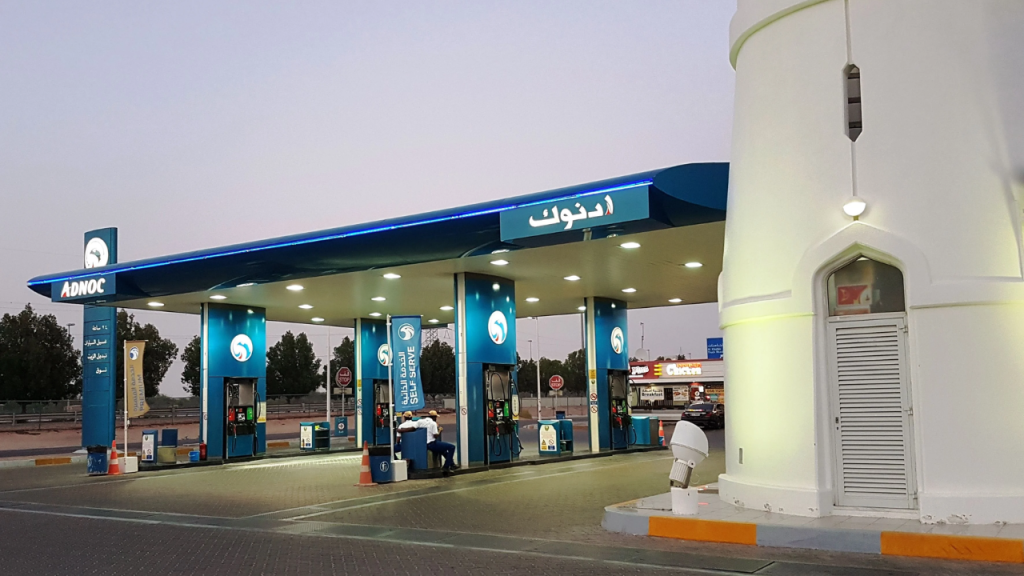
Long-Term Fuel Hedging Strategy
One of the key pillars of Emirates’ approach is structured fuel hedging. Through long-term agreements with global suppliers, the airline locks in favorable pricing conditions that protect against sudden market spikes. Hedging does not eliminate risk entirely, but it significantly reduces exposure to unpredictable cost swings. This allows Emirates to plan pricing strategies months in advance, maintain stable fare structures, and safeguard profitability during volatile energy cycles.
Fleet Modernization Program
A central element of this strategy is fleet renewal. Emirates is integrating next-generation aircraft such as the Airbus A350 and the Boeing 787 Dreamliner into its expanding network. These aircraft provide multiple advantages:
- Up to 20-25% improved fuel efficiency compared to older models
- Lower carbon emissions per passenger
- Advanced composite materials that reduce overall aircraft weight
- Enhanced aerodynamics for optimized long-haul performance
Fleet modernization not only reduces fuel burn per seat but also improves passenger comfort, cabin technology, and operational reliability.
AI-Based Route Optimization
Beyond aircraft upgrades, Emirates is investing heavily in digital transformation. AI-powered systems analyze real-time weather patterns, wind speeds, air traffic congestion, and optimal cruising altitudes. These intelligent systems enable:
- More direct routing
- Reduced holding patterns
- Efficient climb and descent profiles
- Lower auxiliary fuel usage
By integrating data analytics into flight planning, Emirates ensures every flight operates at maximum fuel efficiency without compromising safety or punctuality.
Impact on Ticket Prices
Fuel cost efficiency directly influences airfare pricing models. When operational expenses decline, airlines gain flexibility to introduce promotional fares, competitive transit pricing, and strategic route discounts. For passengers, this can translate into more affordable long-haul travel and improved connectivity through Dubai. While pricing also depends on demand, seasonality, and capacity management, sustainable fuel savings reduce upward fare pressure. This helps Emirates remain competitive against regional and European carriers, attract transit passengers, and maintain strong load factors across its global network. Over time, cost stability supports balanced pricing rather than sudden fare volatility.
Expected Fare Reductions
With more predictable fuel expenditure, Emirates gains flexibility in its pricing models. Industry analysts estimate potential fare reductions of 8–12% on selected long-haul and high-volume routes. These savings may not apply uniformly across all destinations, but they provide Emirates with the ability to run competitive promotional campaigns and offer better value during peak travel seasons.
Greater Pricing Stability
Historically, sudden fuel price increases led airlines to introduce fuel surcharges or abrupt fare hikes. Emirates’ new approach reduces reliance on reactive pricing. This stability benefits:
- Business travelers who require predictable travel budgets
- Frequent flyers planning long-term travel
- Tour operators managing group bookings
- Corporate travel managers negotiating annual contracts
Stable pricing enhances brand trust and strengthens customer loyalty.
Competitive Positioning
This strategic fuel optimization initiative significantly strengthens the competitive standing of Emirates against major regional and global carriers. In a market where long-haul airlines compete aggressively on pricing, connectivity, service quality, and network scale, cost efficiency becomes a decisive advantage. Key competitors such as: Qatar Airways, Turkish Airlines operate expansive international networks connecting Europe, Asia, Africa, and the Americas. By lowering fuel-related operational pressure, Emirates gains greater flexibility in structuring competitive fares without sacrificing premium service standards.
More competitive ticket pricing strengthens Dubai’s position as a preferred global transit hub. Increased passenger flows through Dubai enhance route viability, improve load factors, and create stronger economies of scale. This not only reinforces the UAE’s aviation leadership but also deepens its integration into global trade and tourism corridors. In essence, fuel cost discipline enables Emirates to defend its market share while simultaneously pursuing expansion opportunities in both mature and emerging markets.
Sustainability and UAE Net Zero 2050 Alignment
Fuel reduction is not only about cost, it directly supports environmental commitments. The UAE’s Net Zero 2050 strategy requires industries to progressively reduce carbon intensity. By investing in fuel-efficient aircraft, optimized flight paths, and Sustainable Aviation Fuel (SAF), Emirates contributes to national climate goals while improving operational efficiency. Lower fuel burn reduces carbon emissions per passenger kilometer, strengthening ESG credentials and investor confidence. This alignment ensures that aviation growth does not conflict with sustainability targets, positioning Dubai as a global hub that balances economic expansion with environmental responsibility.
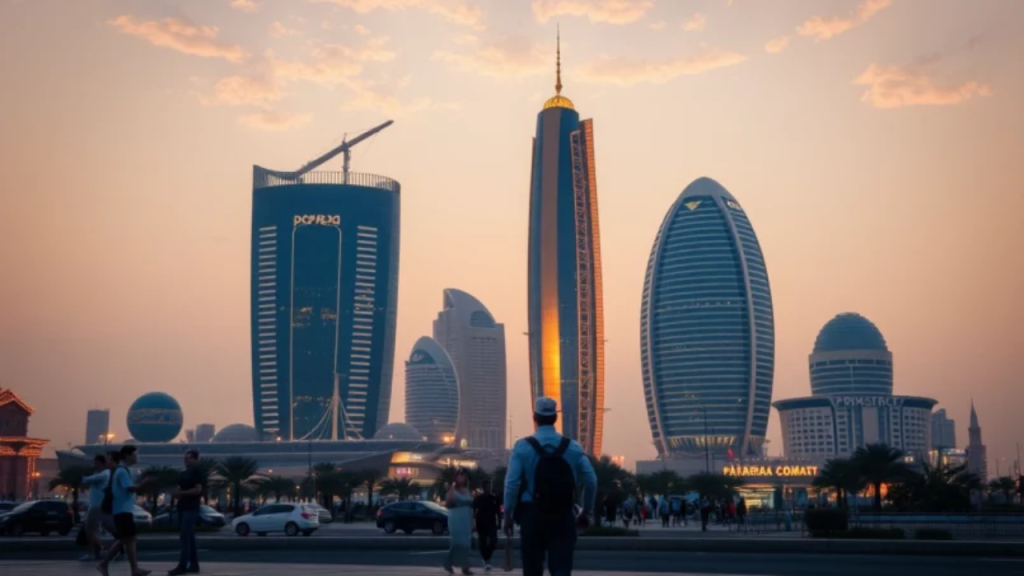
Adoption of Sustainable Aviation Fuel (SAF)
Sustainable Aviation Fuel (SAF) represents one of the most important tools for decarbonizing long-haul aviation. Compared to conventional jet fuel, SAF can reduce lifecycle carbon emissions by up to 70–80%, depending on production methods and feedstock sources.
Emirates has been actively increasing SAF integration across selected routes and test flights. By collaborating with regional energy stakeholders and global sustainability alliances, the airline is working to scale supply chains and reduce dependency on fossil-based fuel over time. Although SAF availability remains limited globally, long-term partnerships and procurement commitments help accelerate market development. Emirates’ participation sends a strong demand signal to producers, encouraging further investment in renewable fuel infrastructure.
Fleet Emission Reduction Strategy
Fleet modernization plays a central role in emission reduction. Next-generation aircraft are designed with:
- Lightweight composite materials
- Advanced engine efficiency
- Optimized wing aerodynamics
- Lower per-seat fuel consumption
When combined with AI-powered fuel management systems and optimized flight routing, these aircraft significantly reduce carbon intensity per passenger kilometer. This integrated approach ensures that emission reductions are not dependent on a single solution but achieved through layered operational improvements.
Supporting the Green Economy
By investing in cleaner technologies and smarter operational practices, Emirates strengthens the UAE’s global reputation as a forward-thinking and sustainability-driven economy. Aviation is a highly visible sector; therefore, leadership in sustainable aviation enhances national branding.
Environmentally conscious travelers increasingly consider carbon impact when choosing airlines. Similarly, institutional investors evaluate ESG (Environmental, Social, Governance) metrics before allocating capital. Emirates’ sustainability alignment makes it attractive to both customer segments and global investment communities.
Logistics, Infrastructure, and Innovation
Fuel optimization depends on advanced logistics coordination and technological integration. Emirates works closely with fuel suppliers, airport authorities, and ground handling teams to minimize wastage during taxiing, refueling, and turnaround procedures. Smart analytics systems monitor real-time fuel consumption, enabling data-driven route planning and weight optimization. Infrastructure improvements at major hubs such as Dubai International Airport enhance efficiency across the supply chain. Continuous innovation in procurement contracts, storage systems, and digital monitoring tools ensures fuel savings are embedded structurally within operations rather than treated as temporary cost-cutting measures.
How Emirates Plans to Achieve Long-Term Fuel Optimization
Reducing fuel prices is not simply about purchasing cheaper fuel, it requires system-wide transformation. Emirates is enhancing its backend infrastructure through:
- AI-driven fuel forecasting and analytics models
- Expanded refueling hubs to minimize repositioning costs
- Integrated supply chain partnerships with Dubai-based energy providers
- Collaboration with airport authorities to streamline ground operations
Investments in green logistics hubs near Dubai’s major aviation corridors further enhance efficiency, shorten aircraft turnaround times, and optimize fuel storage and distribution systems.
Economic & Real Estate Impact in Dubai
Aviation performance directly influences Dubai’s broader economy. Competitive ticket pricing increases inbound tourism, boosts hotel occupancy, and strengthens retail and entertainment sectors. Higher passenger flows also support demand for short-term rentals and serviced apartments near airport corridors. Commercial real estate tied to logistics, warehousing, and aviation services benefits from expanded airline activity. As Emirates enhances operational efficiency, Dubai’s position as a global transit hub strengthens, attracting international investors and business travelers. This interconnected ecosystem demonstrates how aviation strategy can stimulate sustained economic and property market growth.
Boost to Tourism and Hospitality
Lower ticket prices directly stimulate inbound tourism. As flight accessibility improves, Dubai becomes more attractive for short stays, stopovers, business conferences, and long-haul transit visits. Tourism growth strengthens GDP contribution and supports job creation across multiple sectors, reinforcing the long-term strength of the Dubai property market outlook.
Higher passenger volumes translate into:
- Increased hotel occupancy rates
- Stronger retail and dining revenues
- Expanded entertainment and leisure spending
- Growth in event and exhibition participation
Tourism growth strengthens GDP contribution and supports job creation across multiple sectors.

Growth in Short-Term Rentals
Affordable connectivity also encourages longer stays and remote work migration. Digital nomads and entrepreneurs increasingly choose Dubai as a base due to its global accessibility and business-friendly environment. Serviced apartments and short-term rental properties near airport corridors benefit from:
- Higher occupancy rates
- Premium pricing during peak travel seasons
- Improved annual rental yields
As connectivity expands, residential demand becomes more diversified and resilient.
Expansion of Aviation-Linked Commercial Real Estate
Fuel optimization and route expansion reinforce Dubai’s logistics ecosystem. Increased cargo capacity and passenger flows generate higher demand for:
- Warehousing facilities
- Cargo distribution centers
- Aviation maintenance infrastructure
- Mixed-use commercial developments near transport corridors
The relationship between aviation growth and real estate performance becomes increasingly interconnected, creating new investment opportunities across sectors.
Global Industry Implications
When a major international carrier like Emirates adopts structured fuel optimization, it signals a broader shift within global aviation. Competitors may accelerate fleet modernization, invest in SAF partnerships, and strengthen fuel hedging strategies to maintain parity. Industry-wide focus is increasingly shifting toward cost discipline combined with sustainability compliance. This trend reshapes airline business models, emphasizing efficiency, resilience, and carbon accountability. As leading carriers refine operational strategies, the global aviation market gradually transitions toward more stable pricing frameworks and environmentally responsible growth standards.
Competitive Ripple Effects
As one of the world’s most influential long-haul carriers, Emirates often sets operational benchmarks that competitors monitor closely. Its fuel optimization strategy may accelerate similar initiatives across the industry. Other airlines may respond by:
- Expanding fuel hedging programs
- Accelerating fleet renewal plans
- Increasing SAF procurement commitments
- Investing in AI-driven efficiency platforms
This competitive ripple effect contributes to industry-wide modernization.
Industry-Wide Efficiency Trends
The aviation sector is undergoing structural transformation driven by cost pressure and climate commitments. Airlines globally are prioritizing:
- Next-generation aircraft technology
- Data-driven operational analytics
- Sustainable fuel integration
- Carbon reduction roadmaps
Emirates’ strategic alignment reinforces this broader industry evolution toward efficiency and environmental accountability.
Future Outlook
Reduced fuel exposure enhances route profitability, enabling Emirates to explore underserved markets in Africa, Southeast Asia, and secondary European cities. These routes often require tight cost management to remain commercially viable. With improved fuel efficiency, Emirates can confidently deploy capacity into growth regions while maintaining competitive pricing. Competitive fares and sustainability branding position Emirates to attract:
- Digital nomads
- Remote professionals
- Entrepreneurs
- Eco-conscious travelers
- Emerging middle-class passengers in developing economies
Diversifying the customer base strengthens revenue stability and long-term resilience.
Strengthening Dubai’s Hub Status
Efficient fuel management enhances route sustainability, network reliability, and aircraft utilization rates. This ensures that Dubai remains a critical global transit point linking Asia, Europe, Africa, and the Americas. As global travel patterns evolve, cost-efficient operations provide Emirates with the flexibility to adapt quickly while maintaining high service standards. Ultimately, fuel optimization is not merely a financial adjustment it is a structural advantage that strengthens competitiveness, supports sustainability goals, and secures Dubai’s long-term leadership in global aviation connectivity.
At Valorisimo, we combine aviation trend analysis, tourism growth data, and real estate performance metrics to identify high-potential investment opportunities.
Connect with Valorisimo today for a personalized investment consultation and discover opportunities aligned with Dubai’s expanding global connectivity and aviation-driven demand cycle.
Frequently Asked Questions (FAQ)
Why is Emirates reducing fuel costs now?
Emirates is implementing a long-term fuel optimization strategy, including hedging agreements, fleet modernization, and AI-based route planning. This reduces exposure to fuel price volatility, allows more predictable ticket pricing, and enhances competitiveness in global aviation markets.
How will fuel reduction affect ticket prices?
Passengers can expect lower fares by 8–12% on key long-haul routes, more pricing stability, and better promotional campaigns. Corporate travelers, frequent flyers, and tour operators benefit from predictable costs without compromising service quality.
What sustainability measures are tied to fuel optimization?
Emirates integrates Sustainable Aviation Fuel (SAF), modern fuel-efficient aircraft, and AI-driven operational efficiency. These steps reduce carbon emissions per passenger, support the UAE Net Zero 2050 goals, and strengthen Dubai’s position as a sustainable global transit hub.
Related Posts

Golden Visa Dubai: Complete Guide for Investors in 2025

UAE Mortgage Guide: 2025.

Service Charges in Dubai & Abu Dhabi 2025.

Spotlight on Dubai’s Most Active Developers in 2025

A Comprehensive Guide to Mortgages in Dubai Real Estate

How Cryptocurrency is Shaping the Future of Real Estate in Dubai

Living in Dubai: Expat Guide 2025

Buying Property in Dubai with Cryptocurrency
